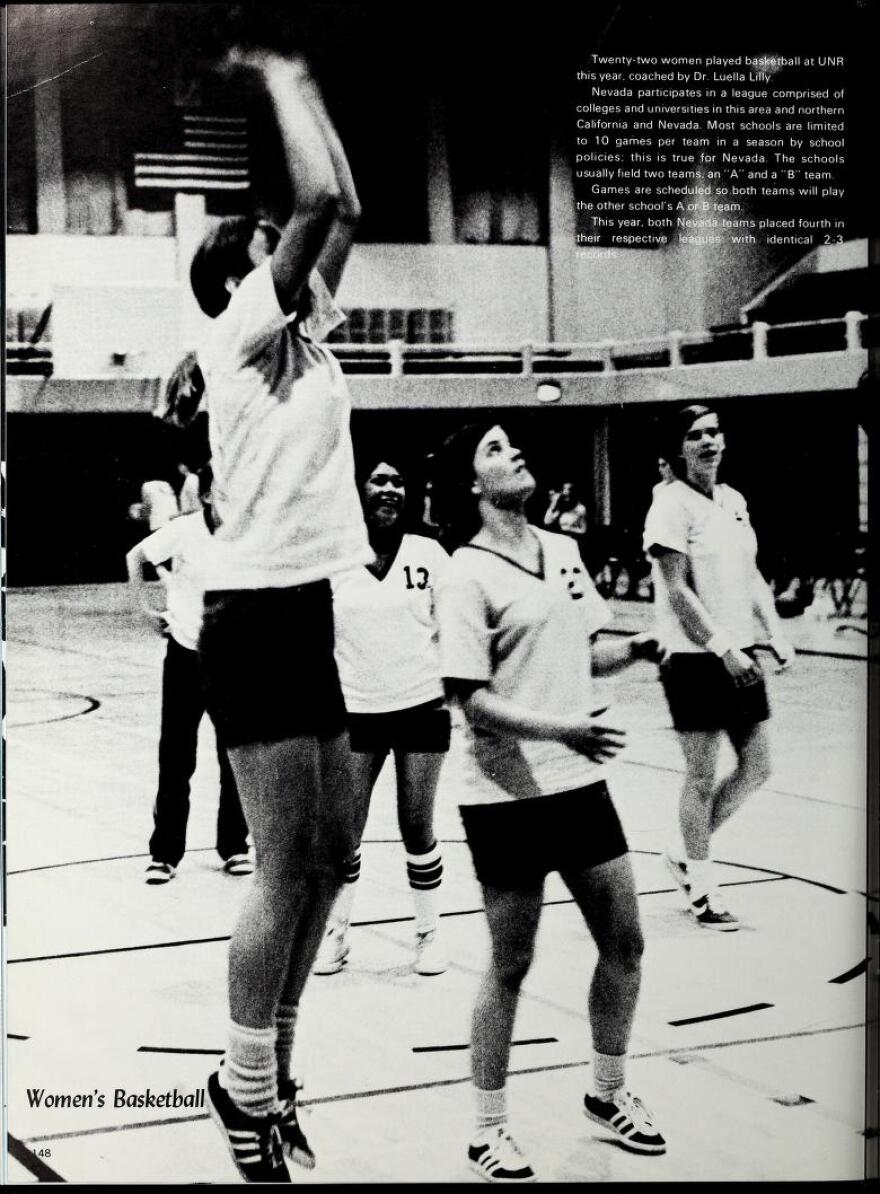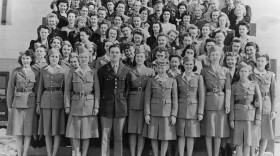Title IX is in the national spotlight right now because of a proposal by Education Secretary Betsy DeVos to roll back policy enforcement related to how sexual assault and harassment are investigated.
Outside of those complex issues, Title IX also impacts the amount of resources provided to women's athletics because it prohibits sex discrimination in education.
In our latest segment of Time and Place, local historian Alicia Barber takes a look back at the early years of women's athletics at the University of Nevada, a period in time before Title IX was made law.
Luella Lilly, known as “Lue,” joined the University of Nevada in 1969 as chair of the women’s Physical Education department. She also coached the women’s basketball and volleyball teams, who clearly enjoyed fewer perks than the men. Lilly immediately set out to change that, with a little help from the university’s Director of Athletics, Jake Lawlor.
“Nevada was still wearing blue shorts and white blouses. The other teams—the other schools—the rest of them had actually gone to uniforms, but Nevada was that far behind,” Lilly remembered. “They still had pennies with the numbers on them, and they at that point in time, had no sweat suits or anything. So when I got up there, Jake was a really friendly guy and was willing to help us and all this sort of thing, and I said, ‘You’ve got to have some old uniforms around here someplace.’ So he gave me the men’s gray, wool—scratchier than anything, but wool—warm ups. I don’t know how long he’d had them.”
“But anyway,” Lilly continued, “these were for six-foot guys, and, of course, some of our girls were five-foot-four, and so we had these huge, great big outfits. But the mothers and some of the team members modified them all so that they came down to our sizes, so that they at least had the sweats.”
The warmups were a good start, but actual uniforms took a little bit longer.

“We got some shorts, and then eventually we ended up getting some tops,” she said. “They wore the same ones, regardless of whether it was volleyball or basketball or softball, or whatever. There was one set of uniforms, and that was the way it got started.”
Women’s athletics made increasing gains after the passage of Title IX in 1972, which officially banned discrimination in all federally-funded educational programs and activities. Today, the University of Nevada sponsors eleven women's varsity sports featuring more than 270 student-athletes. And uniforms are definitely included.
Lue Lilly and 39 others were interviewed for a history of women’s athletics at the University of Nevada. Their full interviews and the completed book, We Were All Athletes, are available through the Special Collections Department of the University of Nevada, Reno Libraries.
And as a note of disclosure, the Board of Regents for the Nevada System of Higher Education owns the license to this station.





